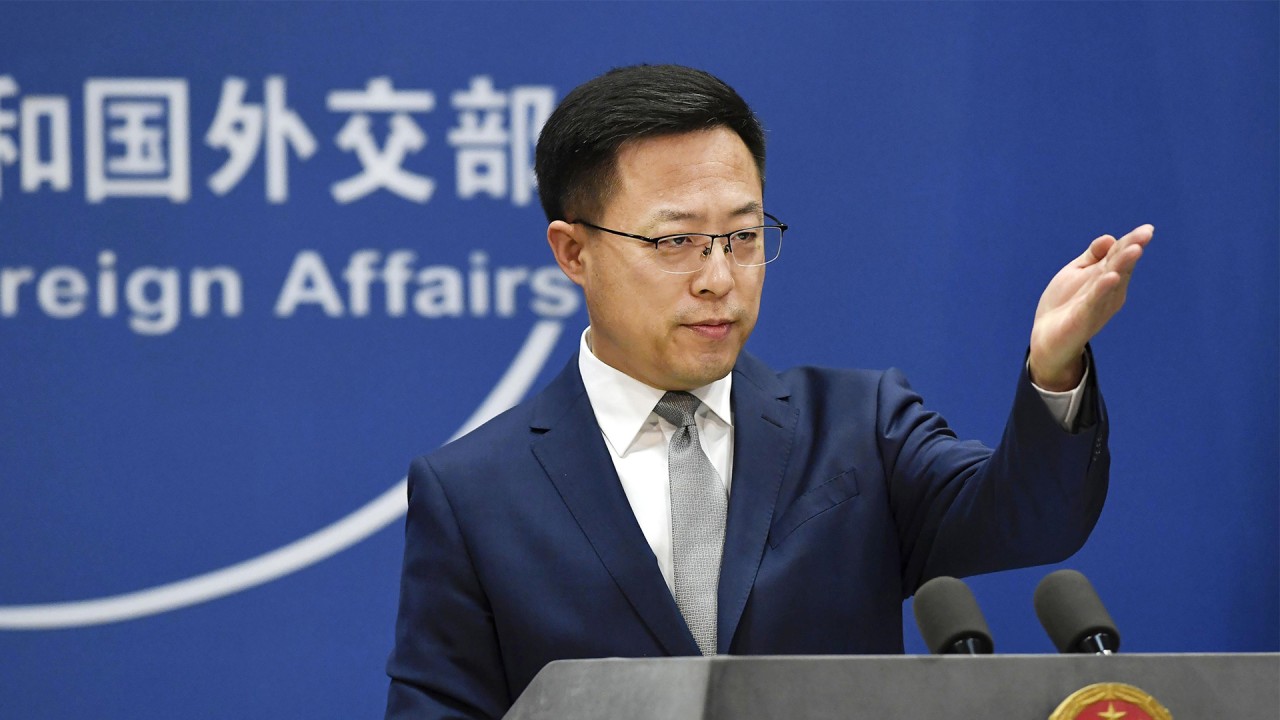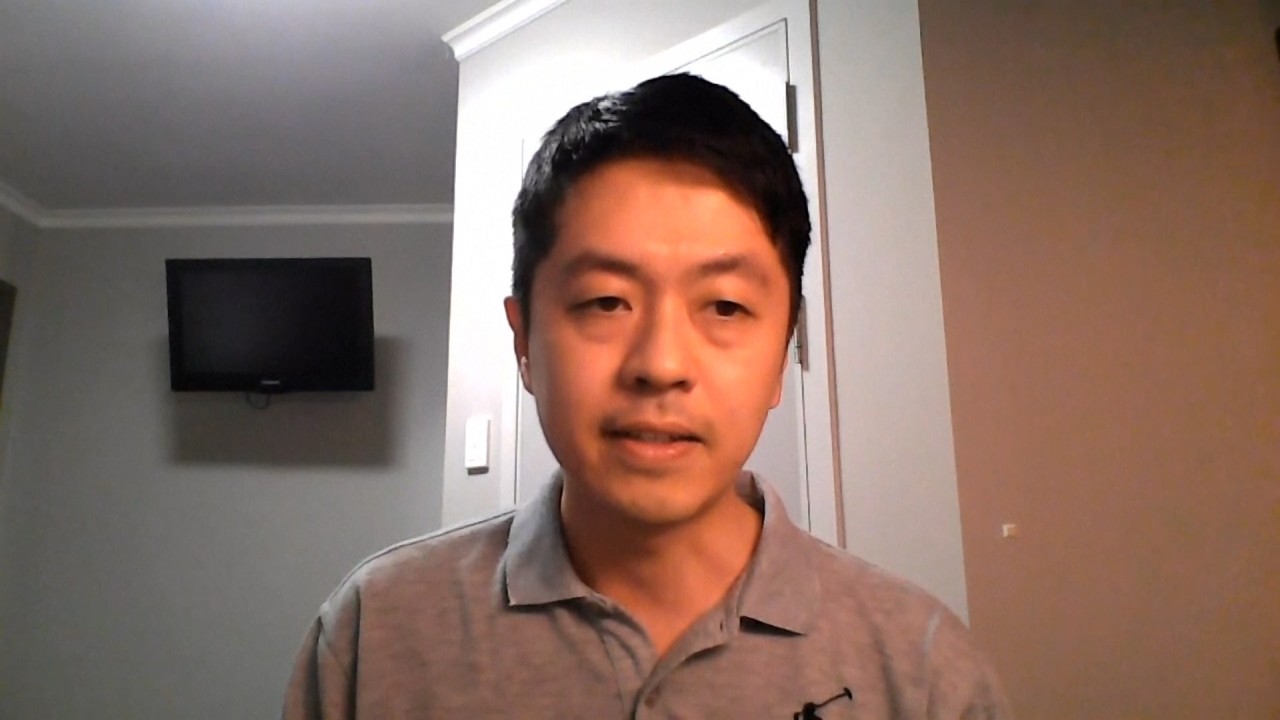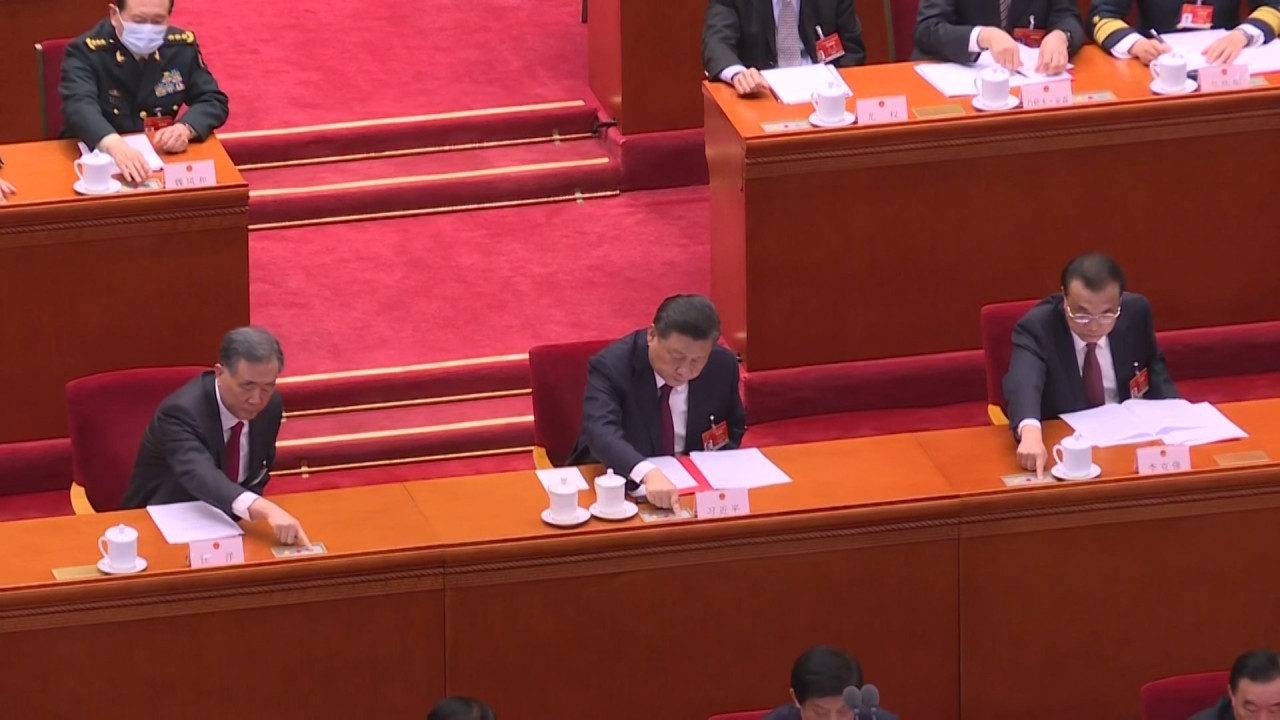
China trying to ‘erode democratic elements’, ‘eliminate dissenting voices’ in Hong Kong with electoral reform, G7 says
- The group says the changes will ‘stifle political pluralism’ and ‘erode democratic elements of the electoral system’ in Hong Kong
- G7 urges China to act in accordance with Hong Kong Basic Law and the Sino-British Joint Declaration
“This is a fundamental policy to maintain Hong Kong’s special administrative region’s political stability and the security of political authority,” it said in a statement on Saturday.
“The so-called statements issued by the US and the West are utterly biased and charged with double standards.”
The statement cited how the United States refined its election loopholes after the Capitol attack and how the European Parliament stripped immunity of former Catalan leader Carles Puiggemont and two other Catalan separatist MEPs who left Spain after the 2017 referendum.
“The hypocrisy of saying one thing and doing the other to slander and defame only further reveals these nations’ hegemonism,” it said.
“Which country in this world would allow non-patriots to hold public positions? What countries would allow politicians colluding with foreign forces, with subversion and separatism tendency to serve as local counsellors?” it said.

01:01
China warns US to stay out of Hong Kong affairs ahead of Alaska talks
The Chinese foreign ministry’s commissioner in Hong Kong earlier “strongly disapproved” of the G7 statement, saying the city’s electoral system was China’s internal affair.
“The key issue is not whether democracy and freedoms should be upheld, but about a battle against those trying to grab power and commit subversion and infiltration,” a spokesman for the office of the commissioner of the Chinese foreign ministry in Hong Kong said in a statement.
“A very few Western countries, however, have made unwarranted remarks about Hong Kong affairs on the pretext of democracy and freedoms,” he said.
“Their latest statements and reports distorted the truth and applied double standards in a bid to endorse anti-China troublemakers in Hong Kong. But it only lays bare their ulterior motive to wish Hong Kong ill and use Hong Kong as a pawn to hold back China‘s development at large,” he said.
The G7, consisting of the United States, Canada, France, Germany, Italy, Japan and Britain, said the changes would “stifle political pluralism” and “erode democratic elements of the electoral system” in Hong Kong.
“Such a decision strongly indicates that the authorities in mainland China are determined to eliminate dissenting voices and opinions in Hong Kong,” said the statement from the group and EU’s foreign affairs chief Josep Borrell.
The statement comes in response to Beijing’s plan for Hong Kong’s electoral system to ensure only “patriots” can rule the city. Critics fear the reform will further quash opposition voices in a city where political opposition has already been severely diminished.
The National People’s Congress (NPC) passed the resolution on Thursday afternoon by a near-unanimous vote, paving the way for the biggest shake-up of the city’s electoral system since its return to China in 1997.
“The package of changes approved by the National People’s Congress, combined with mass arrests of pro-democracy activists and politicians, undermines Hong Kong’s high degree of autonomy under the ‘one country, two systems’ principle,” the G7 statement said.
The reform plan had already drawn a strong rebuke from senior figures in the US, EU and Britain.
EU’s Borrell said it was “yet another breach of the ‘one country, two systems’ principle, and another violation of China’s international commitments and the Hong Kong Basic Law”.
Britain’s Foreign Secretary Dominic Raab described it as “the latest step by Beijing to hollow out the space for democratic debate in Hong Kong, contrary to the promises made by China itself”.

02:12
Electoral overhaul the ’death of democracy’ for Hong Kong, says fugitive former lawmaker Ted Hui
The reform will see Hong Kong’s Election Committee – the function that chooses the chief executive – expanded to add 300 Beijing loyalists. The Legislative Council will also be expanded to 90 seats from 70, and will be elected through the committee, functional constituencies and through direct elections.
Beijing insists the reforms are necessary to “safeguard the constitutional order of Hong Kong”, following disruptive protests through 2019.
On Monday, Li Zhanshu, chairman of the NPC Standing Committee, said the reform would “ensure that patriots administer Hong Kong with legal safeguards provided for the city’s long-term prosperity and stability”.
Senior Biden administration officials will hold the first high-level summit next week with China’s top diplomats since the US presidential inauguration in January. US Secretary of State Antony Blinken and national security adviser Jake Sullivan will meet Yang Jiechi, China’s top diplomat, and Foreign Minister Wang Yi in Alaska on Thursday.
The Biden administration warned this week that China could expect difficult conversations on Hong Kong and Xinjiang.
“This is our effort to communicate clearly to the Chinese government how the United States intends to proceed at a strategic level, what we believe our fundamental interests and values are, and what our concerns with their activities are – whether it’s on Hong Kong, or Xinjiang, or in the Taiwan Strait,” Sullivan said at a White House press briefing on Friday.

00:41
China’s national legislature approves biggest shake-up to Hong Kong electoral system since handover
Its annual report on Hong Kong described “further severe erosion of its high degree of autonomy, its democratic principles, and the fundamental freedoms that the Chinese authorities committed to protect until at least 2047”.
“Politically, the erosion of Hong Kong’s high degree of autonomy and of rights and freedoms that were meant to be protected until at least 2047 has accelerated markedly in 2020,” the report said.
“This follows interventions by the mainland authorities that call into question China’s willingness to uphold its international obligations and its commitment to the people of Hong Kong under the ‘one country, two systems’ principle and the Hong Kong Basic Law.”
In June last year, G7 foreign ministers issued a statement in response to Beijing’s imposition of the national security law on Hong Kong, saying it would “curtail and threaten the fundamental rights and freedoms of all the population protected by the rule of law and the existence of an independent justice system”.


